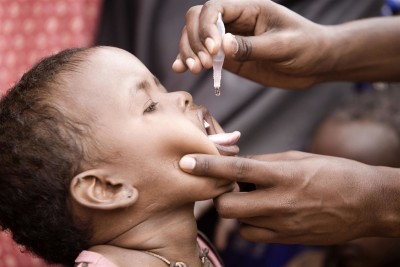
The Executive Director, National Primary Health Care Development Agency, Dr. Ado Muhammed. has said Nigeria required about $284 million to achieve the target goal in immunisation. Dr. Ado made this known ahead of the conference of Anglophone Africa Peer Review Workshop on sustainable immunisation financing in Abuja. He told journalists in Abuja that vaccines and immunisation financing were very critical to Nigeria’s anticipated eradication of polio virus in the country next year.
He said: “As it is now, we require about $210 million for polio campaign. With support from partners and funding from government for 2016, we have been able to bridge the gap. We do not have a gap for polio campaign in 2016. “However, by 2017, we have about $284 million required for polio campaign. Taking cognizance that the Federal Government has been consistent in terms of providing resources this year, it is providing about $80 million as part of its contribution for polio campaign and partners are making up the difference. “With that, we believe that next year, we should be able to give to Africa and Nigerians a polio-free country. “We are very optimistic that by July 2017, we will deliver to the President a polio-free country.” Muhammed explained that Nigeria had “spent over 20 months without any case of polio.
“Nigeria has been removed as a polio endemic country by WHO, but Nigeria is not yet a polio-free country. I think we need to understand the difference between the two. “Nigeria no more transmit polio virus; we have been de-listed from the list of polio endemic countries. But we need to know that it will take us close to two years to be free.”
END

Be the first to comment